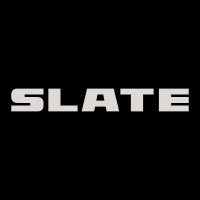
Program Manager, Facilities
ABOUT Slate
At Slate, we’re building safe, reliable vehicles that people can afford, personalize and love—and doing it here in the USA as part of our commitment to reindustrialization. The spirit of DIY and customization runs throughout every element of a Slate, because people should have control over how their trucks look, feel, and represent them.
Who we are looking for:
The Technical Program Manager, Facilities is responsible for overseeing and coordinating all aspects of facility management programs within an organization. This role involves strategic planning, project management, and ensuring that all facilities are maintained to the highest standards. The Technical Program Manager will work closely with various departments to ensure that facilities support the operational needs of the organization and comply with all regulatory requirements.
What you get to do:
Program Planning and Execution:
- Strategic Planning: Develop and implement strategic plans for the maintenance program, aligning with the overall goals and objectives of the OEM.
- Project Coordination: Coordinate multiple maintenance projects, ensuring they are completed on time, within budget, and to the required quality standards.
- Resource Allocation: Allocate resources effectively across various projects, ensuring optimal use of personnel, equipment, and budget.
Stakeholder Management:
- Communication: Maintain clear and consistent communication with stakeholders, including senior management, project teams, and external vendors.
- Expectations Management: Manage stakeholder expectations by providing regular updates on program progress, addressing concerns, and ensuring alignment with organizational goals.
Risk Management:
- Risk Identification: Identify potential risks associated with maintenance projects and develop mitigation strategies to address them.
- Contingency Planning: Create contingency plans to ensure quick and effective responses to unforeseen issues or emergencies.
Performance Monitoring and Reporting:
- KPIs: Define and monitor key performance indicators (KPIs) to measure the success of the maintenance program.
- Reporting: Prepare and present detailed reports on program performance, including progress, challenges, and outcomes, to executive leadership.
Process Improvement:
- Continuous Improvement: Implement continuous improvement initiatives to enhance the efficiency and effectiveness of maintenance processes.
- Best Practices: Identify and incorporate industry best practices into the maintenance program to ensure high standards of operation.
Team Leadership and Development:
- Team Management: Lead and mentor the maintenance team, providing guidance, support, and development opportunities.
- Training Programs: Develop and implement training programs to enhance the skills and knowledge of the maintenance team.
Compliance and Governance:
- Regulatory Compliance: Ensure all maintenance activities comply with relevant regulations and standards, including health, safety, and environmental requirements.
- Governance: Establish governance frameworks to ensure the maintenance program adheres to organizational policies and procedures.
What you bring to the team:
- Bachelor’s degree in Engineering, Business Administration, or a related field. Advanced degree preferred.
- 8 plus years of experience in program or project management roles, with a strong background in automotive manufacturing particularly with coating & bonding processes.
- PMP, Six Sigma, or equivalent certifications are highly desirable.
- Strong leadership and stakeholder management skills
- Excellent analytical, organizational, and communication skills
- Expertise in data visualization, KPI/KAI tracking, and executive reporting
- Strong understanding of technical concepts and the ability to oversee technical teams.
- Proficiency in project management methodologies and tools.
- Excellent communication skills to interact with various stakeholders.
- Ability to resolve conflicts and technical issues effectively.
- Strong leadership skills to guide and motivate teams.
Why Join Team Slate?
We’re fueled by grit, determination, and attention to detail. Slate’s start-up spirit of ingenuity and resourcefulness moves our business forward. Team Slate fosters a culture of excellence, innovation, and mutual respect, and is motivated by shared principles.
- Safety First
- Delight Customers
- One Team
- Relentless Improvement
- Fast, Frugal and Scrappy
- Respectful Collaboration
- Positive Legacy
We want to work with people that reflect the communities in which we operate:
- Slate is proud to be an Equal Employment Opportunity and Affirmative Action employer. We do not discriminate based upon race, color, religion, gender, gender identity or expression, sexual orientation, national origin, genetics, disability, age, veteran status, marital status, parental status, cultural background, organizational level, work styles, tenure and life experiences. Or for any other reason.
Slate is committed to providing reasonable accommodations for qualified individuals with disabilities in our job application procedures. If you need assistance or an accommodation due to a disability, you may contact us at recar-talent_acquisition@slate.auto.
Create a Job Alert
Interested in building your career at Slate? Get future opportunities sent straight to your email.
Apply for this job
*
indicates a required field